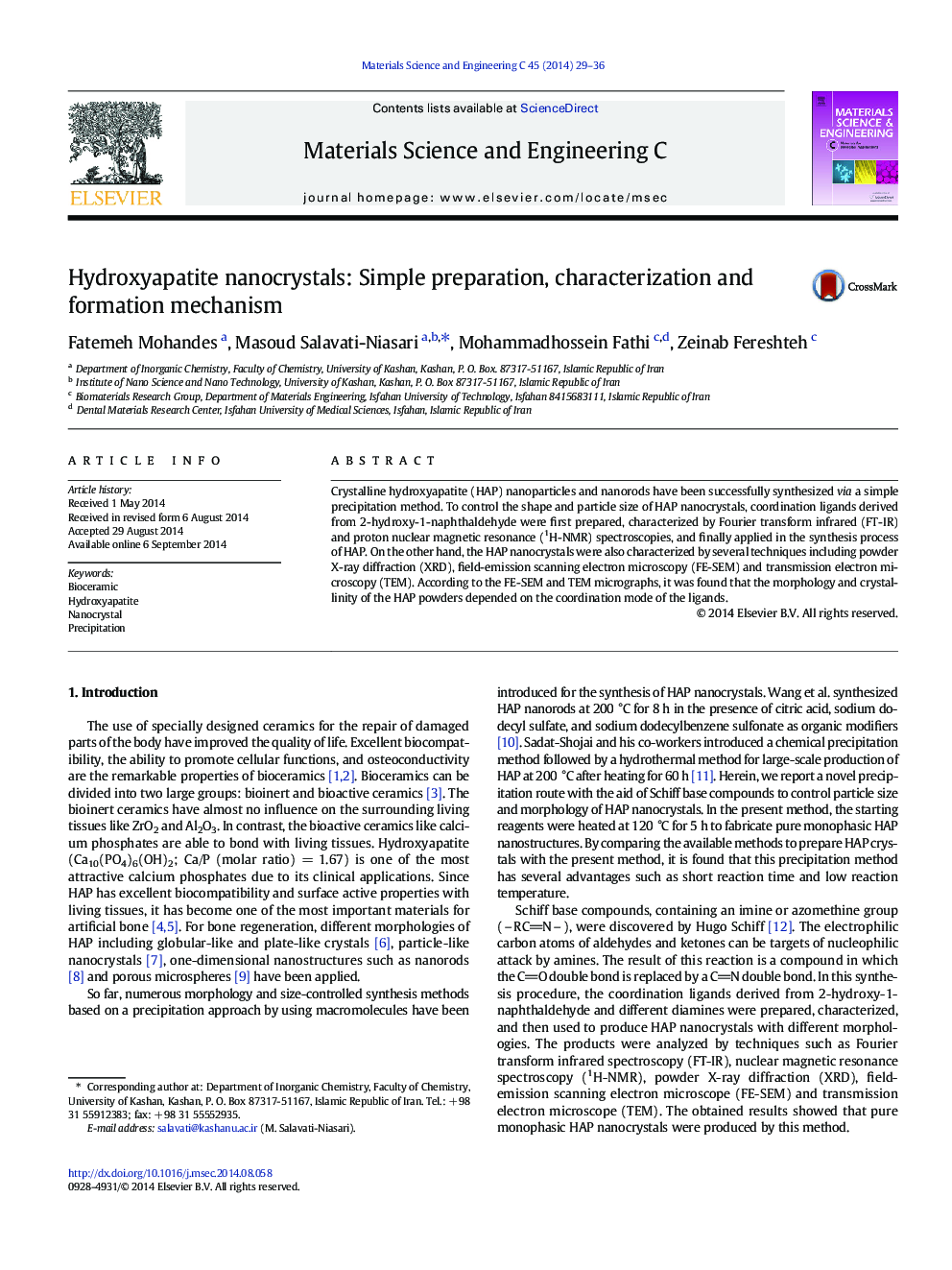| Article ID | Journal | Published Year | Pages | File Type |
|---|---|---|---|---|
| 1428528 | Materials Science and Engineering: C | 2014 | 8 Pages |
•HAP nanobundles and nanoparticles have been prepared by a precipitation method.•Morphologies of HAP nanocrystals were controlled by different coordination ligands.•The formation mechanism of hydroxyapatite nanocrystals was also considered.
Crystalline hydroxyapatite (HAP) nanoparticles and nanorods have been successfully synthesized via a simple precipitation method. To control the shape and particle size of HAP nanocrystals, coordination ligands derived from 2-hydroxy-1-naphthaldehyde were first prepared, characterized by Fourier transform infrared (FT-IR) and proton nuclear magnetic resonance (1H-NMR) spectroscopies, and finally applied in the synthesis process of HAP. On the other hand, the HAP nanocrystals were also characterized by several techniques including powder X-ray diffraction (XRD), field-emission scanning electron microscopy (FE-SEM) and transmission electron microscopy (TEM). According to the FE-SEM and TEM micrographs, it was found that the morphology and crystallinity of the HAP powders depended on the coordination mode of the ligands.
Graphical abstractFigure optionsDownload full-size imageDownload as PowerPoint slide
